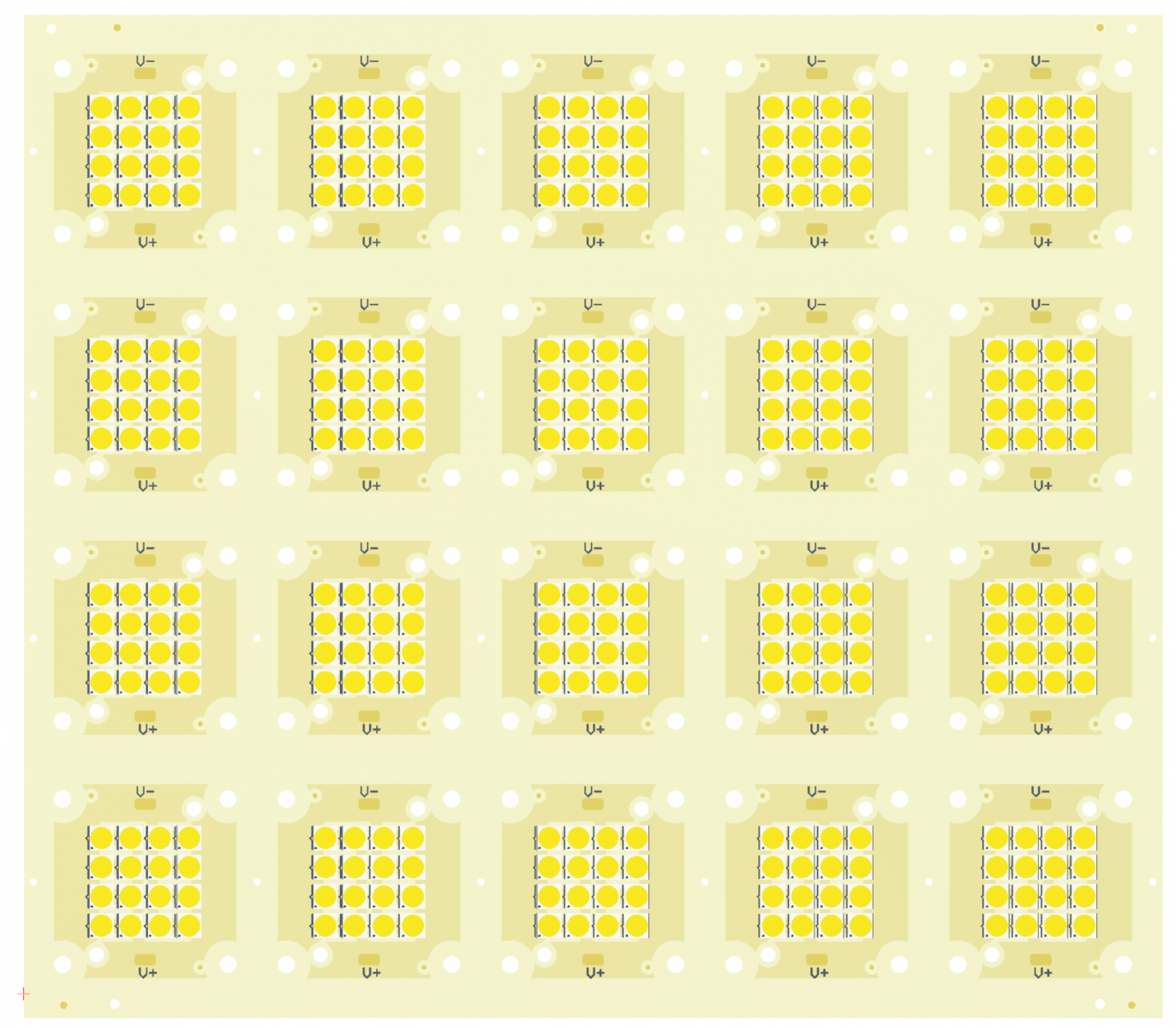Nowadays, LED lighting is more preferred than fluorescent and incandescent lights. It is almost used in every industry, even at our homes. Due to its popularity, the PCB is commonly known as LED PCB or PCB Board for LED. It is known by many names, including LED circuit board, LED aluminum PCB, LED PCB board, etc. But all of them refer to one thing. Due to the rise in LED lighting, LED PCBs are widely fabricated and used almost everywhere.
LED stands for Light Emitting Diode. It’s a semiconductor that emits light when current flows through it. It provides light, which is the reason it is famous and widely used.
Now, LEDs have replaced the old and traditional lighting methods that consume more electricity and are expensive. LED is a better way because it’s more reliable, long-lasting, and efficient. But when we need more lightning to illuminate a particular area, a combination of LEDs is used. In simple words, an LED is not enough to illuminate a large extent, so multiple LEDs are used according to the requirement. Most of the time, the SMD LEDs are used because they are compact and can provide excellent brightness or lumens. There is a special SMD LED PCB board, which is widely used. These LEDs are placed on a PCB; hence, the board is named as LED PCB.
LEDs have a long life, so that they can last for a long time. For instance, an SMD LED can last up to 100,000 hours on average, and even more. Therefore, they are preferred over other methods.
FR-4 is less expensive than metal-core PCBs, but still, it is not preferred. The reason is that LEDs give off too much heat, so it’s necessary to have an excellent heat dissipation capability. FR-4 does not have that capability. Moreover, even if you want to use high heat-dissipating components in FR-4, you need to use heat sinks that take more space on the board. In contrast, aluminum can dissipate heat efficiently, and there is no need to use heat sinks because the base material is more than enough. The dielectric layer transfers the heat to the aluminum layer, and the PCB can efficiently dissipate a high volume of heat without any hassle. This is the reason components can work for a more extended period. Moreover, aluminum can withstand high temperatures; it does not bend or deteriorate. An LED PCB is more durable and long-lasting; therefore, it is preferred.
Aluminum is commonly used for an LED circuit board because of its advantages.
The cost of Aluminum LED PCB is much lower than other metal-core PCBs. It’s a cost-effective solution for high-volume heat dissipation. Furthermore, there is no need to use heat sinks.
Aluminum LED PCB is used because of excellent heat dissipation. LEDs give off more heat as compared to other electronic components; therefore, they need excellent heat dissipation. It increases the life of the components and saves them from any damage.
The efficiency of high-quality LED lamps is six to seven times that of traditional incandescent lamps. On average, switching your house from incandescent to LED light can reduce your energy consumption by more than 80%.
Metal-core PCBs are durable. They do not bend due to high temperatures, and they can bear wear and tear. They are rugged, which is the reason they are used in automobiles and streetlights.
The service life of LED bulbs can exceed 25,000 hours or three years of 24/7 use. This is 25 times that of any traditional light bulb. This saves you the time, money, and energy of buying and installing new bulbs!
Due to their small size, LED lights can be used in applications of various sizes and varieties. This means that manufacturers can plug LEDs into anything from computers and smartphones to cars and traffic lights.
Aluminum is lighter as compared to other metals. Due to its lightweight, the weight of the final product is less.
Unlike traditional options, LED lamps do not contain mercury. Compared with conventional light bulbs, LEDs have less impact on the environment and are easier to handle without requiring special disposal procedures.
Aluminum shows incredible dimension stability. It does not bend or expand too much in high temperatures. The components on the board remain intact.
Absolute Maximum Ratings
| Parameter | Symbol | Rating | Units |
| Input Power | Pi | ||
| Maximum operating current | IFmax | ||
| Junction | Tj | 115 | °C |
| Operating Temperature Range | Top | -20°C To +85°C | |
| Storage Temperature Range | Tstg | -40°C To +100°C | |
| Lead Soldering Temperature | TSOL | Max. 350°C for 5sec Max. | |
Electro -Optical Characteristics at Tc =25°C
| Parameter | Sysbol | Condition | Min. | Typ. | Max | LM/W (typ) | Unit |
| Forward Voltage | VF | IF= | -- | V | |||
| Luminous Flux |
øV Ra |
TC=3000k | 5400 | 6050 | 7260 | 108 | Lm |
| TC=6000+300K | 5600 | 6300 | 7560 | 112 | |||
| IF= | |||||||
| Thermal Resistance | R (j-c) | IF= | -- | °C/W |


.png)

